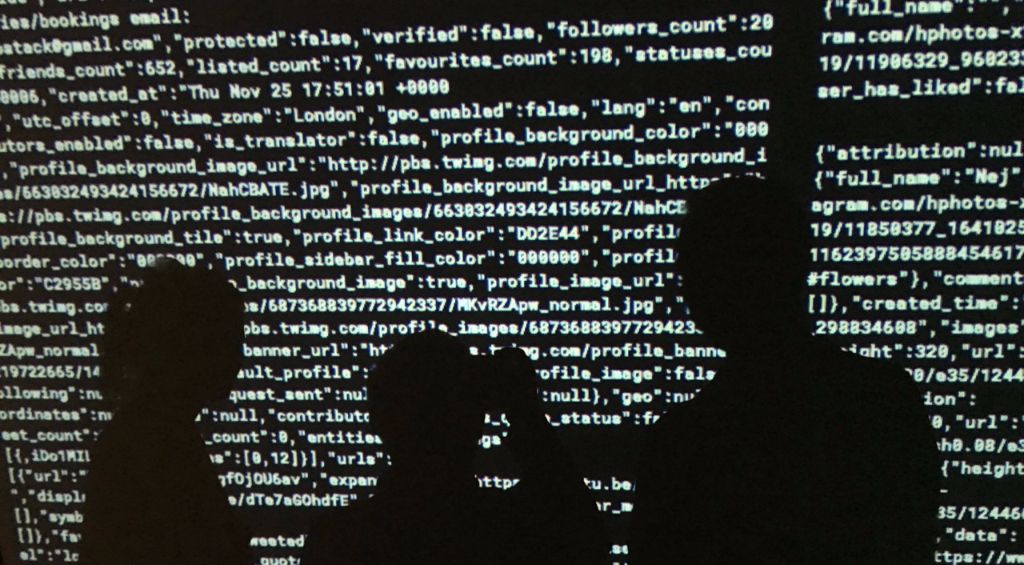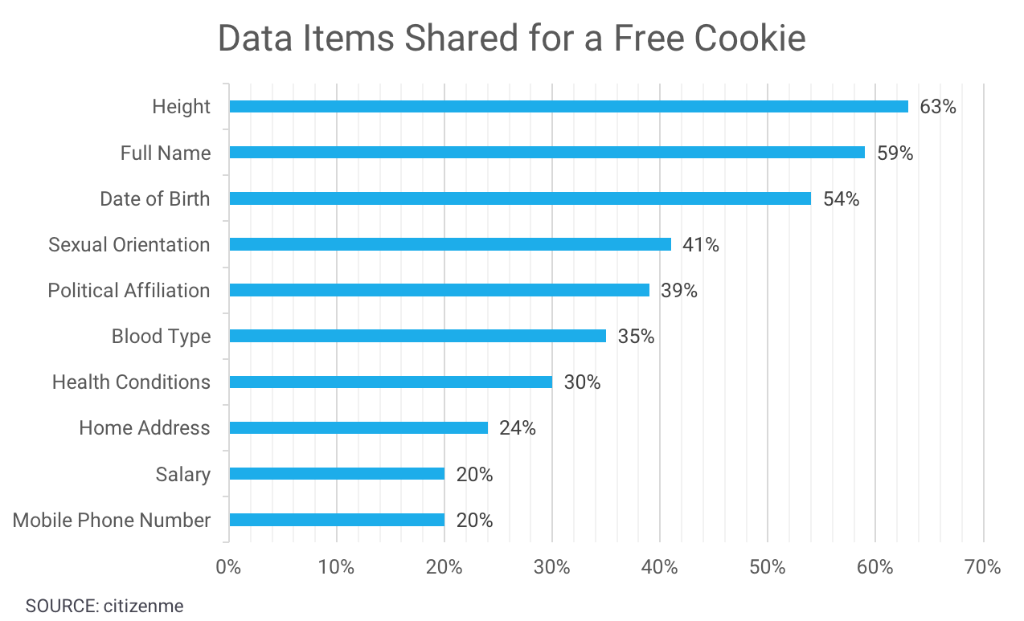
Free cookie for your personal health data. Would you?
Free cookie for your personal health data. Would you? https://www.citizenme.com/wp-content/uploads/2016/04/IMG_4863-2-1.jpg 1024 565 Ryan Garner Ryan Garner https://secure.gravatar.com/avatar/d5d774b86fa69dcb9315259eec6fc589?s=96&d=mm&r=gWould you exchange your personal information for a free cookie? This is the experiment citizenme ran at the Big Bang Data exhibition in Somerset House. The exhibition explored the issues surrounding the explosion of data:
“Emails, selfies, shopping transactions, Google searches, dating profiles: every day we’re producing data in huge quantities. Our online activity, alongside that of businesses and governments, has led to a massive explosion – a ‘Big Bang’ – of data.
This radical shift in the volume, variety and speed of data being produced, combined with new techniques for storage, access, and analysis, is what defines the proliferation of data. It is radically reshaping our world and is set to revolutionise everything we do.”
Visitors will have experienced many of these installations before arriving at citizenme’s showcase. One of the most chilling exhibits visitors will have been exposed to was “Stranger Visions” (2012-2013) by Heather Dewey-Hagborg. She created 3D models of people’s faces from genetic material collected on the streets of New York. From everyday things like cigarette butts to hair.
Creepy, isn’t it :/
FREE COOKIE EXPERIMENT
On Big Bang Data’s final weekend, citizenme ran an educational session on the “value of personal data”. One of the activities we conducted was to offer people a free cookie if they completed a form requesting 10 items of personal data. In total 54 people participated and this is what we found:
- A sensible 28% refused to participate
- Which meant 72% shared at least 1 piece of information about themselves
- Of those that did share some of their data for a cookie on average they shared 5.3 (out of a possible 10) data items
- Here are all the data items ranked by how frequently the data item was shared.

BASE: ALL INTERVIEWED (n=54)
This was enormously surprising. All participants were primed to think about the negative consequences of sharing their personal data. And still 72% were willing to exchange their data for a free cookie, which must have cost no more than 50p. Even more surprising was more people shared their health conditions and blood type than they did their home address and phone number.
What this shows is that the types of data we consider “sensitive” is likely to vary enormously across cultures. In Japan for instance there is a big issue around “blood type discrimination”. If replicated in Tokyo this study would reveal a very different story to this small study in London. This is largely due to the cultural belief in Japan that blood type is linked to personality type.
Furthermore, whilst citizens fluidly move between digital and physical spaces, their physical home is sacred. We have seen numerous studies where citizens in the UK rate their home address and phone number as more sensitive than ethnicity, race, sexual orientation and even health information. Speaking to people after the experiment (and having shredded their form), many voiced the view that on the internet there are ways of blocking, unfollowing and unsubscribing. There are no such options in real life.
IT’S ABOUT VALUE NOT LOCKDOWN
The overall message was clear. People are not interested in locking away their data. The majority of people want value for their data. Even after being exposed to a very visual and impactful exhibition, roughly 3 in 4 people wanted to benefit from their data. One person commented that: “not using Instagram would be like opting out of life”.
The lines between the physical and digital world have eroded. We are global citizens moving fluidly between digital and physical spaces. In our wake we leave a trail of personal data that can (with a bit of effort) be traced back to us as individuals. What this experiment showed was that citizens want more control of their data but not at the cost of “opting out of life”.
Photo credit: citizenme’s very own Arda Dogantemur taken when the citizenme team visited the show back in January.
- Posted In:
- Business blog
- Citizen blog
Ryan Garner
Ryan has provided insights to global brands, helping shape products and services around real customer needs. He has spent the past 3 years helping businesses think about the opportunities in the personal information economy. He now brings this experience to CitizenMe. As much as Ryan loves technology, he likes to escape by growing fruit and veg on an allotment with his kids. And if you have not already heard, Ryan is a very smug Leicester City supporter right now!
All stories by: Ryan Garner


Leave a Reply